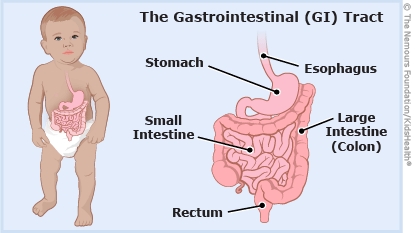Sometimes, young children might swallow objects like coins, beads, batteries, and small toys. Certain swallowed objects (like button batteries or sharp objects) can be dangerous and need medical care right away. Others don't cause any harm and pass through the gastrointestinal (GI) tract and come out in the child's poop.
Your health care provider talked to you, checked your child, and feels that it's safe to watch your child at home. Here's how to care for your child and what symptoms to watch for.



Your child:

Your child has:

What problems can happen if a child swallows an object? Most of the time, a swallowed object doesn't cause any major problems. It passes through the body within about a week and comes out in the child's poop. But sometimes an object can get stuck in or damage part of the GI tract. And some objects — like batteries, sharp objects, or magnets — can cause serious problems and need to be removed.
How can I prevent my child from swallowing an object? Keep small objects (such as batteries, magnets, beads, earrings, crayons, and small toy parts) out of the reach of children. Tell kids that they should never put objects in their mouth, nose, ears, or any other body opening because they can get stuck and cause other problems too. Adults should watch kids when they're around small objects at home, daycare, and preschool.